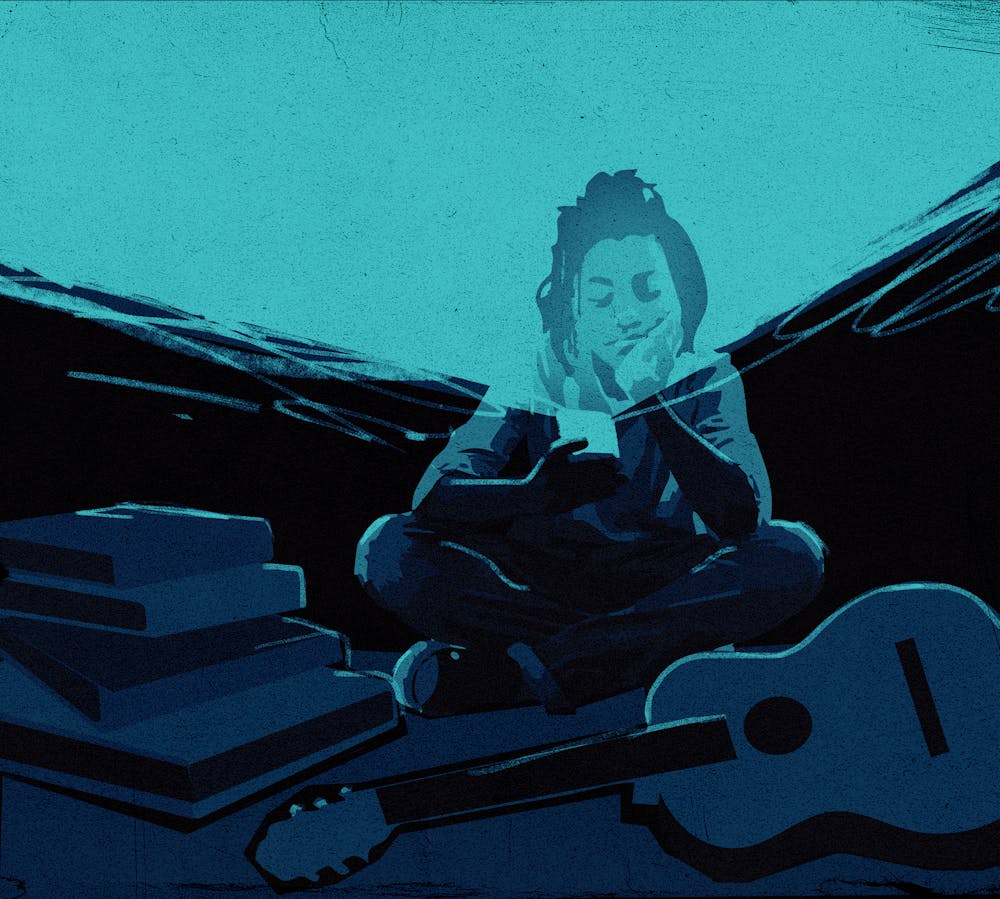The human mind is not very good at perceiving absence. We ascribe terms and labels to what is not necessarily a tangible thing, and yet its implication is clear: it is lacking in something. The cold, darkness, silence – each is defined by defining what they are not.
But the human essence is not so simple. For many things that govern human behavior, it is not so much the thing itself that is lacking, it is our perception of the thing – the lens in which we view and then engage with the world. From this lens, it is easy to attribute our boredom to a “boring” thing: reading, sitting in silence, watching an uninteresting film. It is lacking in what makes us interested, motivated or content.
But it is much more useful to think of boredom akin to a muscle: the more frequently you allow yourself to be bored, or give into the impulse to check on your phone, the less that muscle will be able to withstand progressively boring things – this is called “boredom proneness,” according to psychology researchers Sümer and Büttner, and it can be either strengthened or weakened depending on what is practiced.
“Doomscrolling,” the habit of endlessly consuming online content, is a quicksand in which we rapidly sink – one that is often infectious of everything we do. Its perpetual and paralyzing stimulation leaves us with dopamine addictions of fruitless labor, and we itch for more.
The option to continually swipe after two seconds of disengagement feeds and affirms the catalytic nature of boredom: anything that is slower and quieter is automatically correlated to what the mind recognizes as a type of harm to the mind and in need of relief. Even if cognitively, we want to enjoy our hobbies, we just can’t.
If this were a discussion on time management skills, doomscrolling wouldn’t be relevant; if there is anything we have learned through the education system, it’s the art of lollygagging all day and still turning things in at the last minute.
But what you cultivate in private reveals itself in public: in conversation, in engagement and in experiences. Our minds do not understand what is true; they understand what is practiced. We’ve all heard it: “reading is good for you … it's always those phones … go outside for once and touch grass...” Despite knowing, there is inevitably the doing, which is much more difficult.
It seems that whatever is noteworthy of us is surrounded by what we do – when we find roommates, or apply for jobs or go on dates, the number one question asked is undoubtedly, “What do you do? What is your thing?”
At my college house, we have little notes with our names on them with our hobbies, aspirations, dreams and favorite movies or songs – cute, right? Well, tragically aware of my own hypocrisy, I wrote “hobbies that I say to sound cool,” and then started the whole inner mantra of, “Oh well I like to read (I haven't picked up a book in 7 months), and then sometimes on occasion I will remember that my journal exists, and that I took a ceramics class two years ago so I’ll put that down, and oh I went hiking once and it was enjoyable I’ll put that down too.”
I couldn’t possibly put TikTok down as a hobby; that would make me seem two-dimensional and bland.
Oh!
Reality check. Clocked.
Enjoy what you're reading?
Signup for our newsletter
Why is it, though, that whenever I have some free time, my “hobbies” actually bore me? Like many things, ascribing negativity to anything in life will leave us with a natural and intense aversion to it.
Each time I give in to that slightly uncomfortable feeling – picking up my phone to scroll while stopped at a red light, walking to class or even while trying to read – I am strengthening this idea of “boredom proneness:” at the hint of that slightly uncomfortable, tedious feeling, I must give up and disengage.
What was once an extension of our humanness has now been traded for a game of Monopoly.
Stripped of the public eye, stripped of profit, stripped of instant gratification, our hobbies have no perceived meaning. But with the gain of an optimized and monetized culture, we have lost an essential core of our humanity: the art of doing without needing it to become something.
The mundane and the non-glorious habits of our lives do not have a trending soundtrack behind them – and yet, little by little, perception is found, and life is breathed back into our schedules. Our “hobbies” are not things to cross off our list, but a state of being we lean into; it is what we do, it is who we are.
The human mind is not very good at perceiving absence, but it is good at finding new perceived meanings that might have at first been hidden from the eye. The next time you feel bored with your own hobbies, remind yourself that it is better to live and be bored than to live vicariously through your screen.
Kathryn Hippe is a junior journalism student with a minor in politics, philosophy and economics. She writes for the opinion section of The Miami Student.




